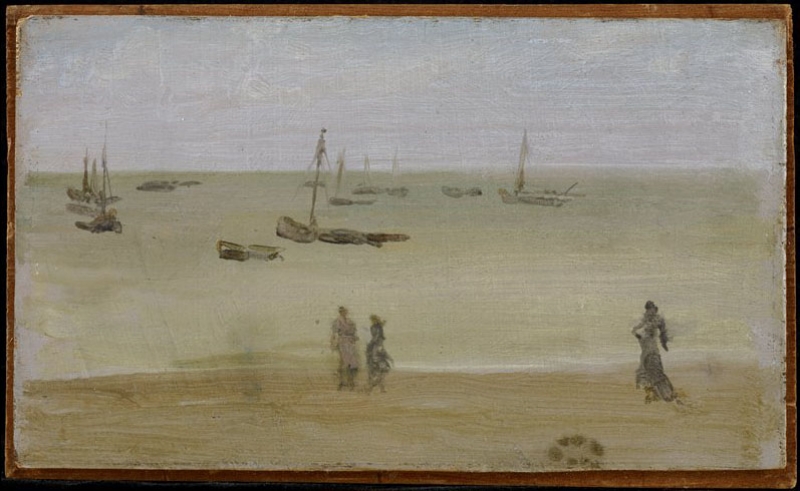Technique
The panel was primed in grey, with three horizontal bands of colour painted in long, horizontal brushworks, punctuated by the tiny figures and boats. To left of the two women at the water's edge there are indications of a further figure. A very fine pointed brush was used for the expressive fine lines of the boats and their rigging.
The Minneapolis Institute of Arts website commented:
'Pigments almost the sheerness of a glaze stroked subtly onto the surface of a panel is a hallmark of James Whistler's technique. In The Seashore three bands of color serve as visual shorthand for shore, sea and sky. Each stroke of the ships and figures, as well as the artist's butterfly monogram at bottom right, are distinct elements justified only by their role in achieving perfect balance within the composition. Whistler realized that small oils like The Seashore would run counter to conventions about the size and degree of finish expected for an exhibition picture at that period. He relished the prospect of the ruckus they would create. One critic was charmed, however, and dubbed them "pygmy pictures" with "big souls." ' 1
Conservation History
Unknown.
Frame
Outer frame: 33.66 x 39.37 cm (13 1/4 x 15 1/2").
According to the Minneapolis Institute of Arts, 'The frame is a period reproduction of a design that Whistler created specifically for his little oils to emphasize their aesthetic importance and, undoubtedly, their degree of presence overall.' 2
Last updated: 13th October 2020 by Margaret






